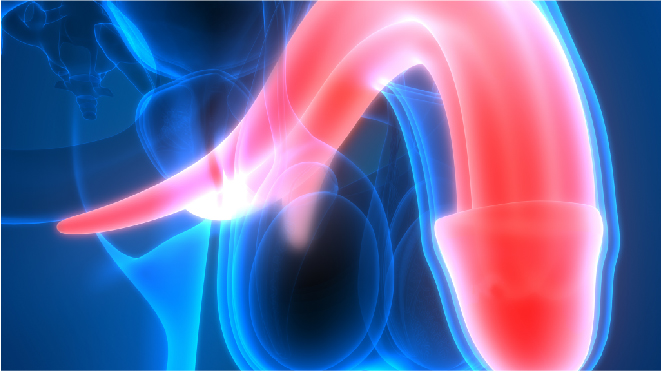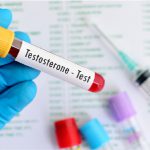Testicular cancer is the cancer in the testicles, the male reproductive organ that makes hormones and sperm. Learn more about testicular cancer here.
What are the treatment outcomes for testicular cancer?
The expected results from a particular treatment is referred to as its outcome. Depending on the stage of cancer, type of treatment given, age, tolerance and overall health of the patients, the treatment outcome differs from patient to patient. The success rate of a treatment is approximated by the number of people who survived the cancer with the anticancer treatments. It is often represented by the 5 year survival rate, which is the number of people who survived cancer for more than 5 years of diagnosis out of every 100 patients diagnosed with it.
Following are the outcomes of the treatments used for testicular cancer:
Chemotherapy:
Chemotherapy aims in treating metastasized testicular cancer. It is mainly used for cancer which cannot be completely eliminated by surgery. Chemotherapeutic drugs are used in combination with other treatments also. Even when all other treatments fail, a combination of chemotherapeutic drugs shows good results, even if the other treatments fail in treating it. Hence, chemotherapy has a good survival rate for all stages of testicular cancer. Chemotherapy given in combination with other treatments, combined chemotherapy also has a high success rate. Learn more about chemotherapy for testicular cancer here.
Radiotherapy:
Radiation therapy used high energy X-rays to kill the cancer cells. It aims at controlling the growth of cancer and removing the cancer without surgery. The survival rate after radiotherapy in the treatment of testicular cancer is not very good for all stages.
According to a survey, radiation therapy is more efficient in treating stage IIA and IIB of testicular cancer. Higher dose of radiation increases the effectiveness of the treatment, but the dose should be increased only under steady monitoring due to potential side effects. Read more about radiation treatment for testicular cancer here.
Surgery:
Surgeries in the treatment of testicular cancer aim at removing the tumours in the testicles, or sometimes, the entire testicles. Surgeries have high success rates in removing the tumours but low survival rate, because they cannot treat metastasized cancer. However, if the cancer has not spread much, surgery has a high survival rate.
For metastasized cancer, surgical treatments are often followed by chemotherapy or radiotherapy to treat the cancer that has spread beyond the testes. Learn more about surgical methods for testicular cancer here.
Survival rates by stage:
The survival rate usually refers to the five year survival rate that shows how many patients out of 100 live beyond five years after first being diagnosed by a specific cancer. It can be an indicator to understand the outlook of the patient based on the type and stage of cancer. 33 is the average age of diagnosis of testicular cancer. Learn about the stages of testicular cancer here.
Testicular cancer has a very high survival rate of 95%. The 5 year survival rates of different stages of testicular cancer are:
Stage I:
Stage I of testicular cancer is confined to the testicles only, removal of these will eliminate the cancer from the body. Thus, this stage has a very high survival rate of 99%.
Stage II:
In stage II of testicular cancer, the cancer has spread to nearby lymph nodes. Surgical procedures, along with chemotherapy or radiotherapy will treat the cancer. 95 out of every 100 men diagnosed with stage II testicular cancer have survived, that is, it has a survival rate of 95%.
Stage III:
In stage III of testicular cancer, the cancer has spread to the lymph nodes away from the testicles. Surgical procedures, along with chemotherapy or radiotherapy will treat the cancer. More than 80 out of every 100 men diagnosed with stage III testicular cancer have survived, that is, it has a survival rate more than 80%.
Stage IV or Stage IIIC:
In this stage, the cancer has spread beyond the testicles to other organs. 70 to 80 out of every 100 men diagnosis with this stage have survived, that is, it has a survival rate of approximately 70% to 80%.
Follow up plan for testicular cancer:
Post active treatment for testicular cancer also, the patient has to be checking his/her health regularly. This is to check for any signs of recurrence of cancer, manage with the side effects and monitor the overall health. The following is the follow up guidelines for testicular cancer.
Developing a follow-up care plan for testicular cancer:
This includes having a diet plan, planning of future appointments, list of physical and medical examinations. This plan helps the patients to get back to their regular life.
Regular monitoring of blood cell count:
Blood transfusions may be required in case of lowered number of blood cells, which is why it is advised to regularly monitor the patient’s blood count.
Regular monitoring of hormonal levels:
Treating testicular cancer can lead to an abnormality in the testosterone levels and in such cases, external infusion may be required.
Healthy diet as advised by a nutritionist:
The patients have to be very careful with what they eat by estimating their digestive tract acceptance.
Watching for recurrence of cancer:
Patients have to be monitored for any symptoms of recurrent testicular cancer. If observed, next cycle of treatment has to be started.
Managing long term side effects:
In order to cope up with the long term side effects, the patients will have to be constantly monitored by the following tests:
- Heart check-ups
- Lung function
- Hearing function
- Regular electrocardiograms (EKGs)
- Mammography
- Computed tomography (CT) scans
Keeping personal health record:
Detailed record of the medical history has to be maintenance by the patient which will be helpful for further diagnosis or treatment in the future.
Testicular cancer follow up care guidelines:
The follow up plan also includes a proper after care for the patient to follow:
- Regular check-ups with the doctor
- Having small healthy meals 6-8 times a day
- Staying hydrated
- Not working too hard
- Keep skin moisturized
- Take nourishment supplements
- Take anti sickness medication to prevent reduce weakness
- Consult a doctor on any reactions




